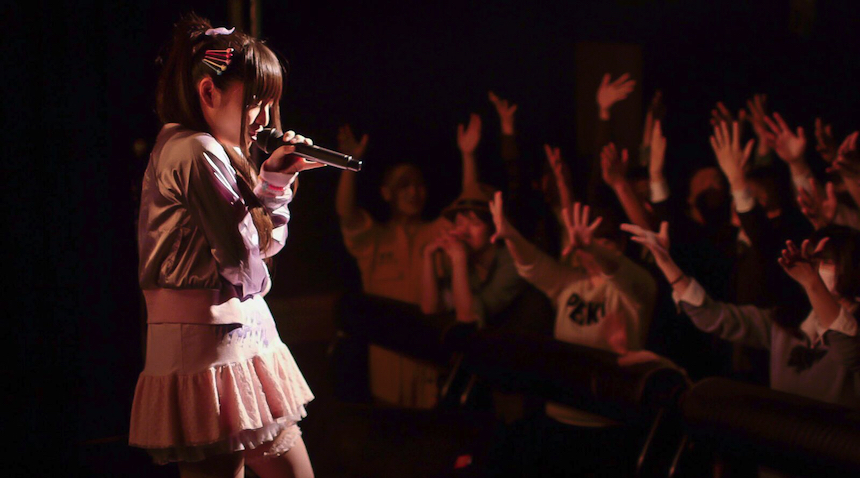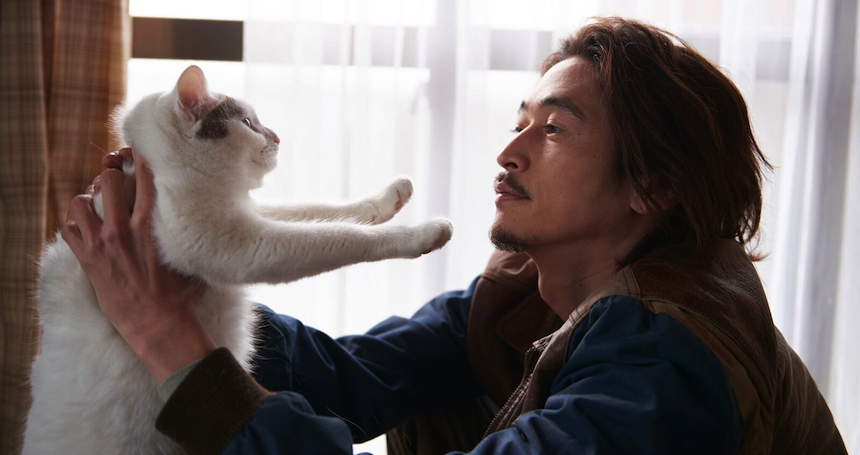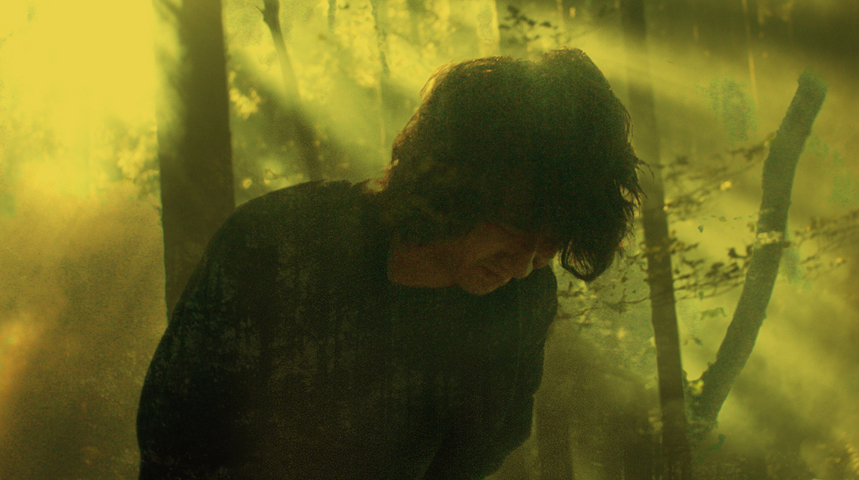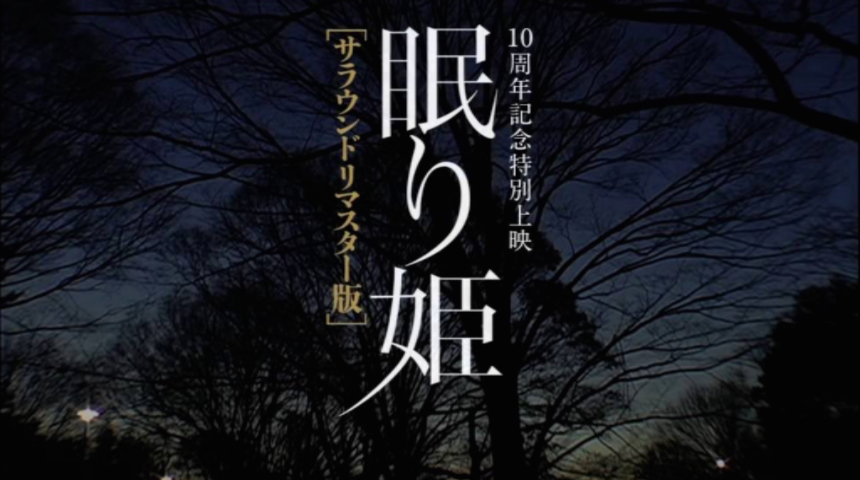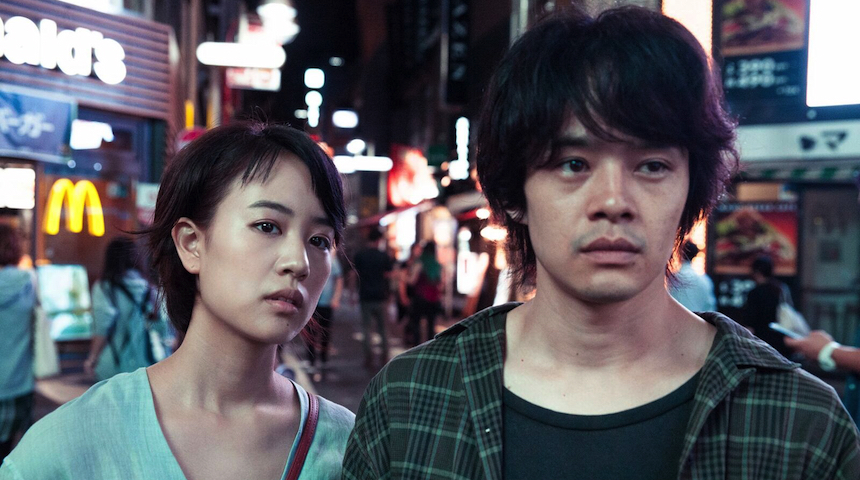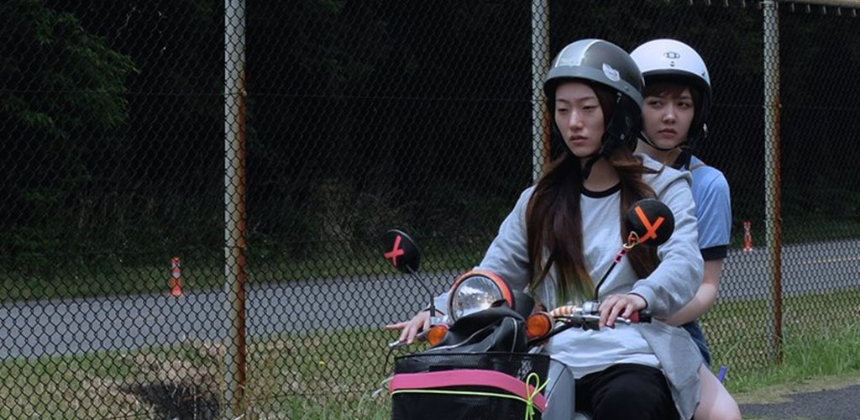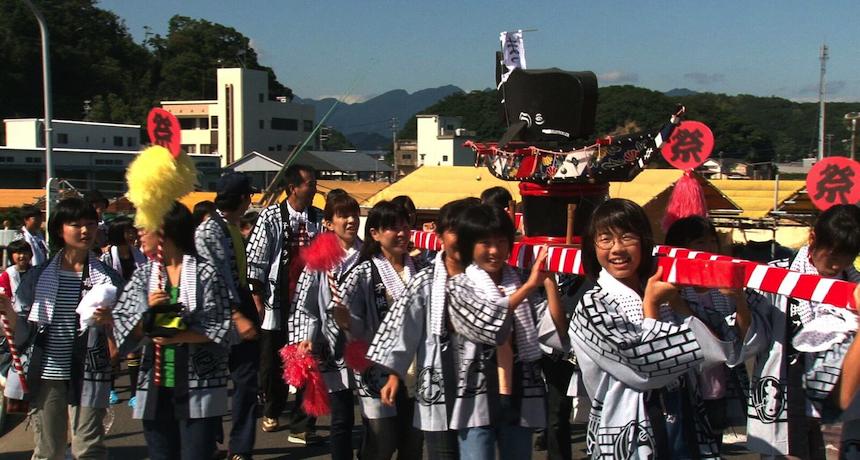Japan Cuts 2017 Preview: A Country at a Crossroads and the Movies at the Heart of it All
Japan Cuts: The Festival of New Japanese Film comes roaring back to life for another season of fresh flicks with the ninja-samurai action epic MUMON: The Land of Stealth kicking things off July 13 at the Japan Society in New York City. From the 13 - 23 of July, you can expect a veritable smorgasboard of cinematic treats, along with a wave of Q&As, special guests, and parties, before the fest closes out with the Kinema Junpo selected "best film of 2016" In This Corner of the World.
Today I am joined by Dustin Chang and Christopher Bourne with a preview of ten films from this year's lineup. While the fest is as wide-ranging in subject and tone as ever, my colleagues and I find ourselves setting the spotlight on primarily independent dramas, documentaries and avant-garde curiosities. Many of these films are fascinating examples of a Japan that finds itself at a political, cultural and economic crossroads; one that is perhaps unlike any seen since post-war. In these films we meet younger generations stunted by tradition, driven by fetish and fantasy, powered by music, and devestated by one's own longings. These are somber, silly and sobering works, offering us pause to consider the nature of human folly before reving us up all over again.
To get a further sense of what's in store, check out our short takes in the gallery below!
Christopher Bourne and Dustin Chang
contributed to this story.










Tokyo Idols
All across Japan, middle aged men dejected by the society around them, retreat into a fantasy land where they worship adolescent pop stars, cultivating a culture that reveres the girls’ purity. Miyake Kyoko's Sundance bowing Tokyo Idols lenses its absolutely jaw-dropping subject matter via well-balanced and continually engaging anthropological journalism.
Once a much maligned sub-culture, pop idol worship is now becoming mainstream, boosting a stagnant economy with upwards of 1 billion dollars in annual revenue. This hyper-capitalist fetish is apart of the 'Otaku' geek culture, something that is highly unique to Japan, in that there is an entire Tokyo district featuring various themed shops and cafes (think if ComicCon was its own year-round neighborhood). There are also rehearsal rooms where the highly devoted brethren gather as if at temple, doing syncopated dance moves as their favorite idol sings bubblegum coated songs about loneliness and self-worth on a nearby stage.
Miyake chronicles one idols’ ups and downs in the business with contrasting and informative interludes from a plethora of super fans, journalists, sociologists and economists. The matter of fact way each and every group characterizes this as a religion is beyond fascinating, for in a complex, multi-tiered system of gender and power dynamics unheard of in a classically sexist country, that is just the tip of the iceberg. Indeed, studying idol culture feels like the perfect microcosm to begin an exploration of wider psychosexual, social and economic issues plaguing post-3/11 Japan. -- Ben Umstead
Anti-porno
Sono Sion is known for crazy movies filled with ultra violence and upskirt photography. In tackling a subject like misogyny in Japanese society can the prolific filmmaker have his cake and eat it too? In his Nikkatsu commissioned Roman Porno Revival, Anti-Porno, Sono goes for it with mixed results.
Tomite Ami is Kyoko, a supposedly famous author, painter and all around creator. She has a somewhat sadomasochistic relationship with her middle aged, mousy assistant Noriko (Tsutsui Mariko). When Kyoko's adoring entourage arrives for a photo shoot, she makes Noriko get naked and go down all fours barking like a chained dog. Suddenly, a director calls cut, revealing that the loft is a movie set and the roles are reversed - Noriko is the dominant one and Kyoko is the submissive, self-doubting, all around much abused young ingénue playing (terribly, she is told) the dominant role in a movie. During the course of the movie, their roles change many times.
In this meta movie-within-a-movie thing, Sono tries to assert the artistic superiority of the roman porno formula over straight up porn: when high school student Kyoko auditions for a roman porno project, claiming she wants to be a whore, she rips her sailor school uniform off only to have the director scoff at her: "This is roman porno. Do you even know what it means to be a whore?"
Satire is one thing, but Sono doesn't seem to get the spirit of the roman porno. To be honest, this Nikkatsu revival of the genre is as dated and tiresome as the James Bond franchise. The revivals are supposed to offer harmless titillation with certain restrictions - no depiction of underage sex, etc. It is sad that in depicting sexual acts, Sono can only resort to school uniform fetishes. The movie is hardly sexy or titillating. Sono falters when he tries to be serious. By the end of it he hastily covers up his muddy messages with buckets of colorful paint thrown all over his female protagonist. I like his comedies more. -- Dustin Chang
Alley Cat
This diverting shaggy-dog (or should it be shaggy-cat?) story concerns two young men - former boxer Hideaki (Kubozuka Yosuke) and car mechanic Ikumi (Furuya Kenji) - brought together by a stray cat, first owned by Hideaki and later found by Ikumi. They meet as rivals over the cat one day when it runs off; they've given the cat competing names Maru and Lily, which they refer to each other by. Hideaki works part time as a hired bodyguard, and his client Saeko (Ichikawa Yui) is being stalked by her ex-boyfriend Toshiro (Shinagawa Hiroshi). A coffee shop confrontation between all these characters is the catalyst for a mostly comically played political conspiracy involving politicians, secret fixers, and call girls. Through these events, Hideaki and Ikumi find the will to quit sleepwalking through life and discover their hidden potential to find real purpose to their lives. Fueled largely by Kubozuka and Furuya's antic comic chemistry, Alley Cat has a wonderfully rugged, playful charm. -- Christopher Bourne
Haruneko
In Hokimoto Sora's debut feature it seems that people who want to die end up in a cafe located deep in the forest. It is run by a young man known only as 'manager' with the help of an old woman who sits in a rocking chair, knitting, and a boy name Haru.
The glimpse of the lives of the would-be dead are projected on a make shift screen, followed by sing-alongs, accompanied by an indie rock group who wear white papier-mâché cats on their heads. After that, the departing are driven through a tunnel of no return, deep into the forest where they disappear slowly. Only their voices remain, whistling like the wind through the trees.
The film's misty forest setting is highly evocative and recalls Tarkovsky. While the idea of a station between two realms reminds me of Koreeda's affecting Afterlife. Strange and beautiful, Haruneko is a somber, haunting and highly ambitious whatsit that falters a little in its own preciousness. -- Dustin Chang
Summer Lights
For his first fictional feature film, French documentarian Jean-Gabriel Périot turns to the history of Hiroshima for a look at the echoes of violence we instill on our world near and far, and how we can no longer hold such scars so deep down.
Ex-pat Akihiro (Ogi Hiroto) has returned to Japan to shoot a French television movie about the 70th anniversary of the atomic bomb falling on the city. Shaken by the testimonial of a survivor, he decides to take a breather in Peace Memorial Park. There he meets Michiko (Tatsukawa Akane), a friendly and knowledgeable young woman who wears out-of-fashion traditional dress. Soon, they set off an adventure that takes them to the seaside, where they befriend eight-year-old Yuji and his grandfather. A spark of friendship is struck between the four as they celebrate the festival of ancestors in the near-by village.
While Périot's work never shies away from talk about the day the bomb fell, Summer Lights, like its title suggests, is a gentle, caring and very touching work that is imbued with a charming sense of magical realism. The chemistry between our leads is enduring, gently toying with a classic walk-and-talk scenario, with Tatsukawa acting as the great melancholic heart of the film. It is through her wistful looks that we feel the weight of the past, its horrors and tragedies, bearing down on us, leveling our heart's gaze to fall into a somber, reflective mood. Summer Lights is indeed a film that asks us to consider what we have wrought. But most of all, it is a work that reminds us to celebrate the moment. For that is all we truly have. -- Ben Umstead
Love and Goodbye and Hawaii
In Matsumura Shingo's offbeat take on romantic comedy, Rinko (Ayano Aya) and Isamu (Tamura Kentaro) continue to live together even though they broke up months earlier. But it's a comfortable arrangement, and Rinko even insists they get along even better than when they were romantic partners. She claims she's only staying until she can earn enough money to move out, but it soon becomes clear that she's kidding herself. When another woman emerges who seems to be catching Isamu's attention, Rinko is forced to confront the reality that she still has feelings for Isamu.
This low-key charmer boasts a fine central performance by Ayano, and also a delicately poignant undertow provided by the situation of characters afraid to take chances and move forward, preferring to remain in self-created cocoons of comfort and familiarity. -- Christopher Bourne
Once Upon A Dream
Once Upon a Dream consists of static images of quiet empty rooms, subway rides, cityscape at dusk. It is a cult film that has been gathering followers over the years, including Kurosawa Kiyoshi who compared it to Jean-Luc Godard. Indeed, the film's carefully composed exterior shots remind me of many of Godard's works from the 1980s.
The film follows a barely seen protagonist, a soft-spoken school teacher whose somnambulist existence and her weird demeanor are affecting her day to day life. We hear her thoughts in voice-over and her conversations with others, without us seeing anybody on screen. We hear the rustle of bed sheets, footsteps, breathing, the moving of locomotives, idle, unintelligible conversations of others in shops and cafes. For these reasons Once Upon a Dream is perhaps the most intimate eavesdropping film as opposed to the most voyeuristic.
Director Shichiri Kei, on the film's 10 years anniversary, has added crisp new footage, and a redone soundtrack, invigorating this avant-garde classic with new life. The result is a hushed contemplation of urban loneliness that is beautifully realized, both visually and aurally. Quiet yet deeply affecting, Once Upon a Dream is a truly one of a kind experience. -- Dustin Chang
The Tokyo Night Sky is Always the Densest Shade of Blue
Best known for the off-beat, up-beat Sawako Decides, director Ishii Yuya presents a “bright lights big city” drama that holds great reverence for the things that feel forever untethered and amiss in our lives.
Playing out across an impressionistic cityscape and in the young hearts and minds of Mika (Ishibashi Shizuka) and Shinji (Ikematsu Sosuke), Ishii’s film shelters the deep sadness and swelling desire of a generation caught in a limbo they may never be able to escape. While its dramatics can feel awfully muddled and maudlin, with supporting stories that never earn their screen time, the film's central narrative manages to balance a mood that is equally fearful and hopeful, suffocating and expansive. The instantly watchable Ishibashi and Ikematsu create a chemistry between their love lorn characters that feels authentic. -- Ben Umstead
Yamato (California)
Yamato, a city 35km south of Tokyo, hosts the largest US military base in Asia. In his indie feature, director, Miyazaki Daisuke, a Yamato native tackles the influence the US still has on the city's inhabitants, and he has some pointy things to say about it.
Sakura (Kan Kanae), plays a wayward high school dropout, first seen rapping in the city's garbage dump. She hasn't quite found herself yet, and her rebellious and thuggish attitude is not winning hearts and minds. In order to pursue her music career, she needs to get a computer and a smart phone. She finds out that there is a singing contest at a local cultural center with a $2,000 US dollar prize.
Things get a little more interesting when Rei (Endo Nina), an American-Japanese daughter of Sakura's mother's unseen American boyfriend comes to stay with them. At first, Sakura is downright hostile, but Rei's sunny disposition wins her over and they start hanging out. They share beers and bad pizza. But Rei's insistence of hearing her rap pushes Sakura to re-evaluate her directions.
In terms of the its disaffected youth with their shot at success theme, Yamato (California) treads the same path as Irie Yu's indie hit 8000 Miles trilogy. The interesting subtexts of US cultural dominance and the rise of jingoism are also there. There is so much potential in the film, especially with two beautiful, striking actresses- Kan who is very charismatic and has a good screen presence and Endo, a short haired gamine. I just wish Miyazaki concentrated more on the characters and details of their lives instead of awkward, obligatory actions that only serve to move the story forward, ultimately taking up too much screen time. -- Dustin Chang
A Whale of a Tale
Sasaki Megumi's documentary is one of two Japanese productions that emerged last year in response to Louie Psihoyos' 2009 Oscar-winning film The Cove, which put the small fishing town of Taiji in a harsh international spotlight because of the fishermen's practice of hunting and killing dolphins, especially the method of forcing them into a cove to be slaughtered. While The Cove was widely praised for exposing inhumane practices and for its cinematic techniques of presenting this as a real-life thriller, it was also criticized for its aggressively one-sided advocacy, and for obtaining its footage by questionable means. The film’s dynamic of virtuous white Westerners facing off against evil, hostile Japanese was also highly problematic.
The most valuable aspect of Sasaki's film is that it provides the nuance and context mostly missing from The Cove, as it checks in with Taiji's residents in the years following that film's release. And although it is very careful about not overtly taking sides, certainly its portrait of Taiji's fishermen are far more rounded, even sympathetic, than in The Cove. They've modified their hunting practices in clear response to that film, though some would be loath to admit that openly. By the same token, the (mostly non-Japanese) anti-dolphin hunting activists come across as far less heroic than in The Cove, as rigidly ideological and mostly uninterested in informing themselves about the history and complicated function of dolphin hunting and consumption to the life of Taiji. Still, their views are given equal respect and weight here as those of Taiji's fishermen. While both sides are left at a perhaps unresolvable stalemate, Sasaki’s finely nuanced film does a great job at illuminating and fully humanizing the issues involved. -- Christopher Bourne

Around the Internet
Recent Posts
Friday One Sheet: LIVING THE LAND
Now Playing: BLADES OF THE GUARDIANS and Some Other Movies
Leading Voices in Global Cinema
- Peter Martin, Dallas, Texas
- Managing Editor
- Andrew Mack, Toronto, Canada
- Editor, News
- Ard Vijn, Rotterdam, The Netherlands
- Editor, Europe
- Benjamin Umstead, Los Angeles, California
- Editor, U.S.
- J Hurtado, Dallas, Texas
- Editor, U.S.
- James Marsh, Hong Kong, China
- Editor, Asia
- Michele "Izzy" Galgana, New England
- Editor, U.S.
- Ryland Aldrich, Los Angeles, California
- Editor, Festivals
- Shelagh Rowan-Legg
- Editor, Canada


